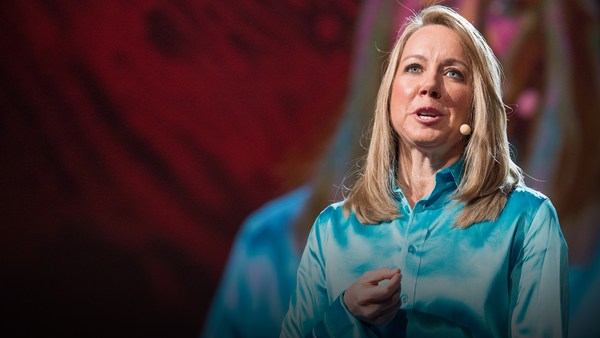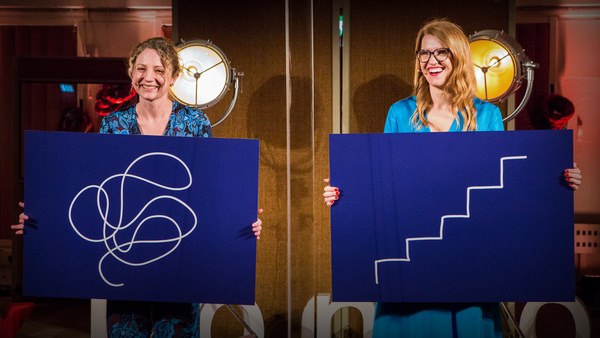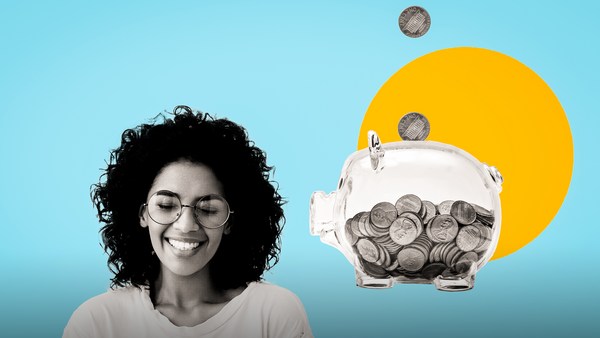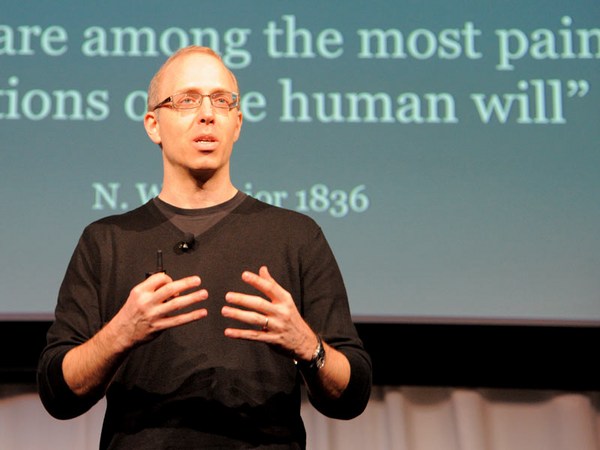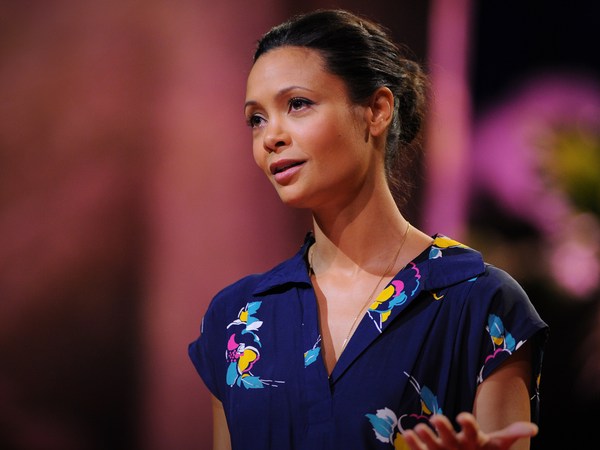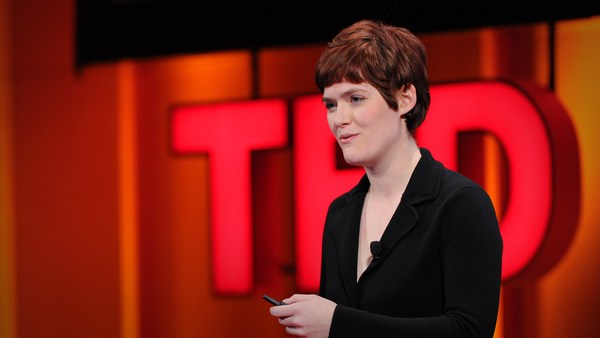Meg Jay: We need to talk about the empathy gap. So the empathy gap is why we sometimes hate on people on the other end of the political spectrum. Or it's why maybe we shrug their shoulders at the problems of those who look different or live different or love different than we do. It's why we almost certainly aren't doing enough to protect our kids and grandkids from climate change. It can just be difficult sometimes to care about people that we don't know or to do right by people who don't even exist yet. But what if I told you that that same empathy gap can also get in the way of us doing right by ourselves in our 20s and beyond? And before I go on, let me say that everything I'm about to talk about also applies to all of us out there who are well beyond our 20s.
But for a little bit of background, in 2013, I gave a talk about why our twenties matter. So it's about almost 10 years later. I'm still a clinical psychologist who specializes in 20-somethings. But these days, the 20-somethings I see, they know their 20s matter. So they want to get them right. They want to move to the right city. They want to take the right job. They want to find the right partner. They want to have the right answers. Well, the bad news is there are no right answers. There are no right answers for where you should live or where you should work or how you should settle down. These are what are called "large world problems" because there are just too many unknowns. No app, no algorithm, no enneagram can ever solve these problems or answer these questions for you.
But the good news is, because there are no right answers, there are no wrong answers. There are only your answers. So your 20s are a great time to listen to and be honest with yourself. They're a great time to have a conversation with your future self. So philosopher Derek Parfit said we neglect our future selves because of some sort of failure of belief or imagination. So I'm going to say that again, because it's really important: we neglect our future selves because of some sort of failure of belief or imagination. So when you're young, it can be difficult to imagine or believe that you could ever really be 35, especially when most of the influencers you see on Instagram or TikTok are younger than that. But that's a problem because research shows that our brains think about our future selves similarly to how they think about strangers. And that's where the empathy gap comes in. It can be difficult for us to care about a version of ourselves that we haven't met yet.
Yet research also shows that if we find a way to close that empathy gap between our present selves and our future selves, we start to think more about what we could do now to be kind to ourselves down the line. So in one of my favorite studies on this, researchers used virtual reality to show 20-somethings what they would look like when they're old. Scary, I know, but the 20-somethings who saw their age-morphed selves, set aside more money towards retirement than those who didn't. So I don't have virtual reality in my office and saving for retirement isn't something that comes up a whole lot. But what does come up a whole lot is that about 85 percent of life's most defining moments take place by around age 35. So I ask my clients to imagine themselves at age 35 and I ask them to believe in their ability to have created those defining moments. And then I ask them to get really specific about what they see. What do I look like, where do I live, what do I do for work? Do I enjoy the work? Is it meaningful? Is it important? Does it pay well? Might these things be true one day? Which of these things do I really care about? What about after work? Who do I come home to? Do I have a partner? What does that relationship look like? How does it look different or similar to the ones that I saw growing up? Are there kids in the picture? How old was I when I had my first child? How old might I be when that child goes to college or has their own kids? And of course, am I happy, am I healthy? And what exactly do I do or not do that makes me happy and healthy?
So the idea here is just to try to get to know your future self, because when we spend time connecting with that person, we do some reverse engineering and we start to ask our present self questions about how our present and our future can come together or meet somewhere in the middle, along the way. We start to ask questions like, "How is everything I think I want going to fit?" or "What does all this mean about what I need to be doing now?" Or here's one of my favorite questions to ask yourself at any age: "If I'm in a job or a relationship or a situation I would like not to be in in five years, then how much longer am I going to spend on this?" So, like I said, many of these are tough questions. But 20 years of doing this work has taught me that 20-somethings aren't afraid of being asked the tough questions. What they're really afraid of is not being asked the tough questions. And maybe that's because they've told the world that they're interested in having courageous conversations about race and class and politics and the environment. And perhaps at any age, one of the most courageous conversations you can have is with your future self. Thank you.
Whitney Pennington Rodgers: Thank you so much, Meg. That was wonderful. I'm glad to be here with you and with all of our members. And I know that your work is with people in their 20s, young adults. But you mentioned in your talk that this is something you can apply at any stage of your life and at any point. It's not just advice that you should use in your 20s, is that right?
MJ: Oh, yes. I mean, I think our 20s is when we first start having to sort of figure out, "Oh, there's a future self out there. And I guess I better think about that person." Because, you know, like, school kind of does it for us, has us plot two or three years in advance. So our 20s are when we first start to think across those horizons. We get better at it over time. And then in our 30s, 40s, 50s, we have more built-in connections to the future. Like maybe if you have kids, you think, "Hey, I really want to be around when they graduate from college" or whatever the case may be. So there are there are ways we kind of -- it becomes a little bit more natural the older that you get. But it's always important. I have a couple in my practice right now and they're actually having a conversation with their future relationship, because in about five years, their kids are going to be leaving for college and they want to be sure they have a marriage they feel good about when the kids are gone. Or if I think about myself, I'm 51. So I'm having a conversation with my future self about, "Hey, you know, what do I want to get out of the years of my career that are just ahead in my 50s and, you know, time's running out. What is it I want to get done?" So I think we're, you know, we always need to be in conversation with our future self. It's just something that's new and usually quite difficult for 20-somethings.
WPR: So I guess one thing I’m curious about is, you know, people have said, "OK, I like this idea of these questions. I want to ask myself these questions." And they do that. And then what happens? You know, I guess, what do you recommend people do next? What is the way that they can sort of take this further to advance themselves and this thinking?
MJ: Yeah, so, you know, again, it depends on the goal or what ended up happening between you and your future self in this conversation. But I think like most long-form projects, so I would suggest some, you know, pencil and paper, do some math, sort of sketch out some things just to start with. And then as you go along, you might realize other things that are important to you down the line that you want to be sure that you get in there and add in there. And then I would figure out -- it depends on what it is, but a schedule that works for you, where you check in about your progress on, "Hey, am I being true to myself and to my future self in terms of what I said I was going to start prioritizing more." So maybe that check-in is once a month. Maybe it's every year on New Year's. Maybe it's your birthday. It really kind of depends. But I do think -- I mean, having this conversation one time because you heard my chat today and then dropping it is probably not going to do a lot for you. But if it's kind of the beginning of an ongoing conversation with yourself and like with any goal, it's probably something we need to keep circling back around on. "OK? Is this still what I want and how am I doing on this?" It kind of create some accountability. And so for that, that is where I think some people find, I'm going to tell a friend or I'm going to tell my pastor or I'm going to write it in my journal or whatever it is for you to kind of say, this is a goal that I'm going to own and I'm going to keep coming back to it.
WPR: Have some sort of partner, even if that partner is yourself, your future self.
MJ: Right.
WPR: Well, Meg, thank you so much for being with us today, for your for your talk and for sharing so much of your wisdom around these questions and your 20s, and so much more. Thank you. Thank you. Thank you.
MJ: Yeah, my pleasure. It was really fun.
